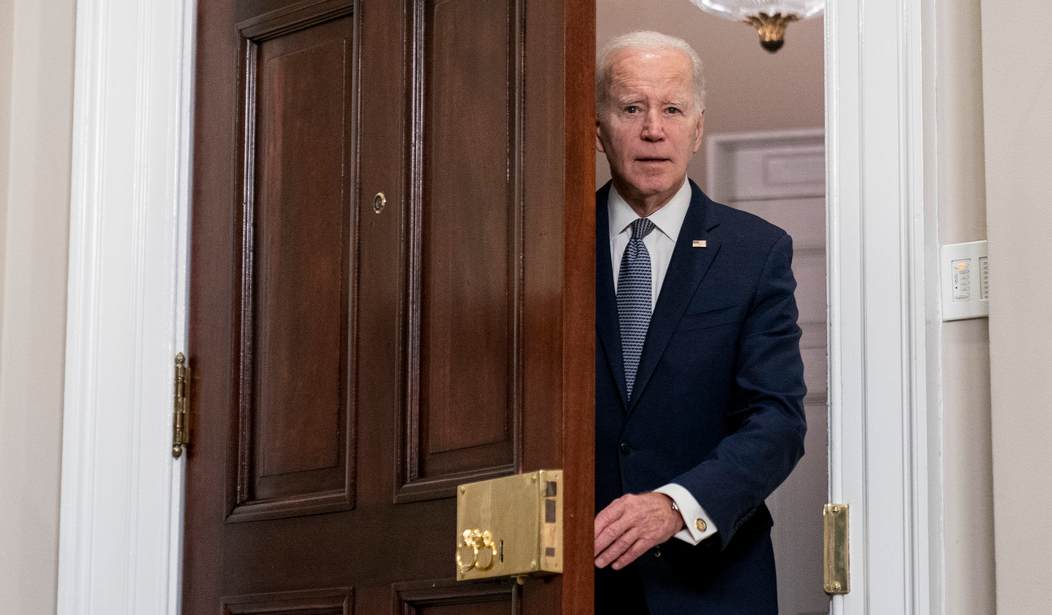Editor's Note: Madeline Malisa co-authored this column.
About two years ago, President Biden quietly issued an executive order (EO 14019) that puts our free and fair elections at risk. States, with the help of Congress, still have time to stop it before the 2024 election.
The order directs federal agencies, many of which have nothing to do with election administration, to work with private outside groups to “expand voter registration and voter participation.” It takes the worst of the Zuckerbucks election scandal and attempts to codify it into a formal practice.
Allow us to refresh your memory. In 2020, billionaire Mark Zuckerberg funneled $350 million into Left-leaning counties to boost Democrat turnout and influence election results. It seems this time around, the White House reflected on Zuckerberg’s annexation of state-run elections and thought “let’s try it again, but publicly fund it this time.”
That alone is unconstitutional, but it gets even worse. There is nothing preventing the White House and partisan bureaucrats in federal agencies from hand-picking groups that favor “get-out-the-vote” activities for Democrats, ensuring their electoral victories for years to come.
The White House has been intentionally opaque with details on how agencies will enter agreements with outside organizations to engage voters, and what level of influence and access these outsiders will have. But finally, with the 2024 election looming, the Biden administration released some more details, through still vague, on how it plans to transform agencies into “get-out-the-vote” machines for the Democrats—and all funded by our tax dollars.
Recommended
A White House fact sheet was practically whispered out to the public on a quiet Sunday afternoon, and it’s as problematic as you might expect. It lists agencies you’d never typically associate with an election, and how they plan to promote turnout.
The Department of Treasury is advertising for voter registration in the instructions for IRS Form 1040 and in the mail to 900,000 Americans who receive federal benefits, while the Department of Justice pledged to promote voter registration and voting inside the prisons it oversees.
The Department of Education will use StudentAid.gov to promote Vote.gov, and “encourage colleges and career schools to make good-faith efforts to register students to vote.” They don’t specify how it will happen, but based on past guidance, we can guess they will urge schools to spend Federal Work Study funds to pay students to register voters and do other election activities on and off campus.
The Indian Health Service will push its facilities to register patients as voters just in time for the 2024 election, a population that some groups believe will produce 1.2 million more Democrat votes.
The takeover is underway, but we can still fight this on several fronts. To start, state legislatures can pass laws requiring approval before any new federal funds or new election administration guidance can be accepted or followed by state agencies. Legislatures can also require state agencies to notify them when a federal agency tries to contact them through a backchannel.
Let’s also not forget that Congress holds the power of the purse. All members of Congress took an oath to support and defend the Constitution, and they can make good on their promise by cutting off funding to agencies that advance this unconstitutional directive.
Congress can also use its oversight powers to subpoena documents and hold hearings to get some answers on how agencies plan to comply with the executive order. Our own group, the Foundation for Government Accountability, has sent several ‘Freedom of Information Act’ requests to agencies that ask how they intend to work with third-party groups to interfere with state elections.
Those requests went unanswered. When we followed up with a federal lawsuit, the administration begrudgingly released only 135 pages (out of 5,500 relevant records), and most were redacted. FGA’s battle in court rages on.
But as our fight continues, Congress should wage its own battle to stop this scheme by doubling down on its effort to get answers from the administration, using what FGA has uncovered so far to help guide their efforts. At the very least, Congress may, through its subpoena power and through sworn testimony it can gather from the president’s political appointees carrying out this order, uncover information that state attorneys general can use to file lawsuits to challenge its legality. States have several winning legal arguments they can make, but to establish standing needed to file their lawsuit, they need specific evidence of what the agencies are doing in their state to help carryout this scheme. Aggressive congressional oversight can supply states with this critical information, and a lawsuit filed by one state anywhere in the country could immediately stop the order nationwide, if not permanently, at least until after the 2024 election is over.
There is still time—and plenty of options—to stop private groups from infiltrating our elections. Let’s not repeat the mistakes of the past. Zuckerbucks was a bad idea then, Bidenbucks is a bad idea now.
Tarren Bragdon is CEO of the Foundation for Government Accountability, where Madeline Malisa is a senior fellow.

























Join the conversation as a VIP Member